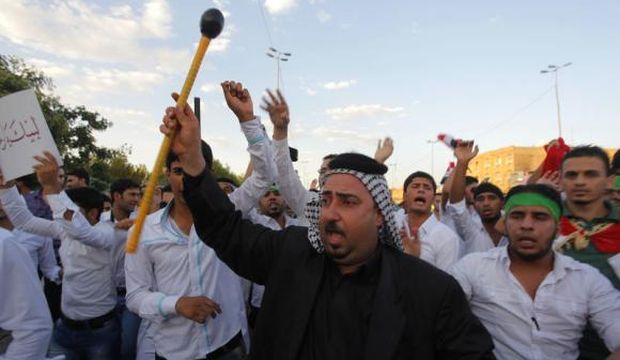Iran continues to place great pressure on the member blocs of Iraq’s National Alliance, particularly the Al-Ahrar bloc led by Moqtada Al-Sadr and the Citizens’ bloc of Ammar Al-Hakim, to push them into withdrawing their opposition to Prime Minister Nuri Al-Maliki, who is pushing strongly for a third term in office. The two prominent Shi’ite leaders have been arguing that Maliki’s State of Law coalition and the Da’wa Party—also members of the alliance—have the right to nominate their candidates for the premiership, but cannot impose them on the Alliance. They have, in several statements, stressed that the Alliance should put forward more than one candidate.
But Tehran opposes the idea of the alliance entering the parliamentary session to select a new prime minister with several candidates, on the pretext that the Kurdish and Sunni blocs would choose the candidate that suited them—and this candidate would not likely be from the State of Law. That would not be in the best interests of either Tehran or Maliki. This explains Tehran’s insistence that a parliamentary deal on the Iraqi presidency and two vice-presidencies would be clinched if the National Alliance agrees on a single candidate for the post of the prime minister.
The State of Law coalition insists on its own interpretation of the constitution, arguing that the largest bloc in the Alliance should put forward its own candidate. In this case, Maliki is the candidate of the largest bloc within the alliance. Therefore, the State of Law coalition is working—with Tehran’s backing—towards obliging the remaining member-blocs within the Alliance to accept its interpretation, with the aim of stopping them from putting forward their own candidates. In fact, the constitution stipulates that the largest coalition in parliament should put forward its candidate. This is exactly what Maliki did after the 2010 elections: he resorted to the federal court, which decided that the candidate should be from the largest coalition, not bloc. The decision then allowed Maliki’s bloc, which won 89 votes, to defeat Iyad Allawi, whose bloc won 92 votes.
Tehran and Maliki are trying to prevent a repeat of what happened in the 2005 elections. At the time, Kurds and some Sunnis rejected the Shi’ite coalition’s candidate, Ibrahim Al-Jaafari, demanding that Shi’ite political forces nominate a more nationally accepted candidate. Maliki was chosen as part of a settlement, despite the fact that his Da’wa party had only 12 seats. The largest bloc, the Islamic Supreme Council of Iraq, had 31 seats.
Iran is exploiting the escalating sectarian tension in Iraq in a bid to push the Shi’ite public into a state of sectarian polarization on the pretexts that they are facing an existential threat and that the crisis has uncovered the presence of ineffective partners—a reference to the Kurds. The political escalation with the Kurds has reached a climax, with media and political figures affiliated with Tehran claiming that the withdrawal of Maliki’s candidacy would be tantamount to Kurds dominating Shi’ite political decision-making, as well as an act of submission to the Ba’athists, who are working with the Kurds and being protected by the Islamic State of Iraq and Syria and Al-Qaeda. And so we can see that withdrawing Maliki’s nomination would represent a setback to the role and status of Shi’ites in the Iraqi political arena.
Such considerations reflect negatively on the Al-Ahrar bloc and the Citizens’ bloc. Serious voices within these two blocs have called for the formation of a new, larger alliance that excludes the State of Law coalition. Such a step would be regarded as an attempt at breaking Shi’ite ranks by giving precedence to private interests over that of the Shi’ite sect, and thus lead to the weakening and fragmentation of the Shi’ite power base, as well as to their being subjugated to the orders and interests of others.
In addition, the Iraqi prime minister and his backers have managed to promote among the Shi’ite public the idea that any candidate other than Maliki would be forced on the sect and lead to the loss of all that has been achieved. Linking Maliki’s premiership with the unity of Iraqi Shi’ites puts their future in danger because theirs is part of the future of a unified Iraq that is able to cooperate and compete with its Arab, Turkish and Iranian neighbors rather than focusing on whether Shi’ites are monopolizing the political arena in the country.
The current rulers of Iraq are monopolizing the country only in the name of Shi’ites. Wise Shi’ites should learn from the lesson of Saddam Hussein, who dominated the country to the point of destruction, while acting as though he was defending the interests of Sunnis.
